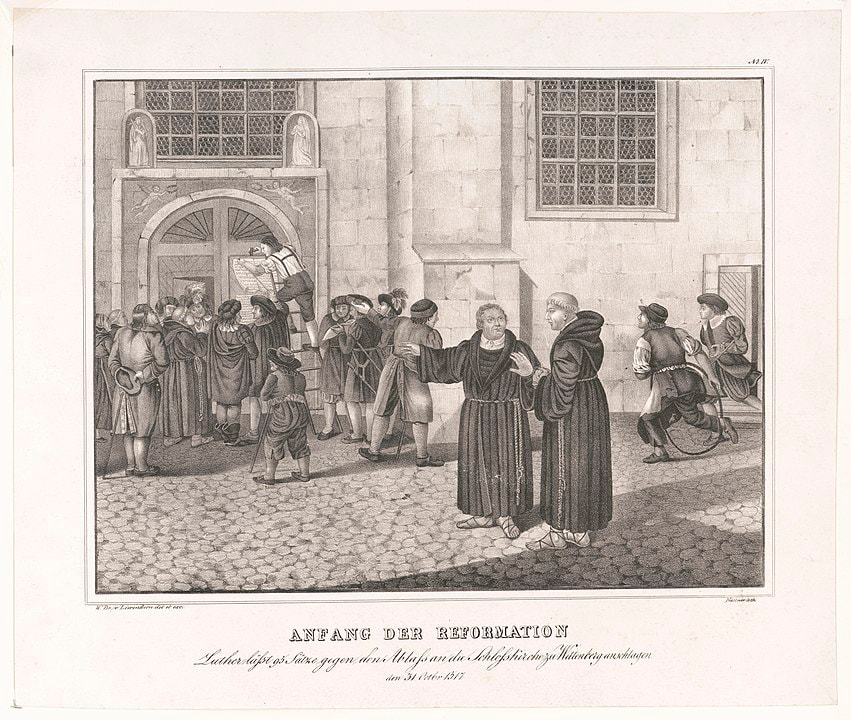"Reformation Day," or "Reformation Sunday" as it is typically celebrated in North America, can very easily become a Lutheran Pride holiday--a second Pentecost, a day to celebrate our team's largely-imagined victory over its largely-imagined enemies. There are many reasons to avoid this, but one big reason is that the early Lutheran reformers themselves did not consider the Reformation to be a success. A movement that was for the whole church became confined to those countries whose princes adopted it (sometimes for reasons that had little to do with faith); a struggle over fairly technical points of doctrine turned into continent-wide wars; an attempt to change the church of Europe gave way to whole new churches with their own very un-evangelical histories. It's something that's hard for anyone, Protestant or Catholic, who cares about our common history and faith to contemplate without some sorrow.
So if Reformation Sunday isn't going to be Lutheran Pride Day, what should it be? For one thing, it really is a good day to revive our connections to that wider, universal Church that Luther aimed not to break apart but to reform. And that's because one of the most important legacies of the Reformation is the definition of the Church as God's people gathered around God's Word and Sacraments. It's not an organization or a bundle of activities or a hierarchy or a community marked off by territorial boundaries. It's a new creation, called into existence by God over and over again. So when we talk about "Reformation," it's important to remember that we aren't making an ideal out of certain people or a certain moment in history. The goal of the Reformation, as Luther's colleague (and the better theologian of the two) Philipp Melanchthon put it, is a "reformed church always reforming." That's hard! In fact, as a human idea, it's impossible. But what we celebrate on Reformation Sunday is God's continuing power to renew the Church, and through the Church, the whole world.


 RSS Feed
RSS Feed